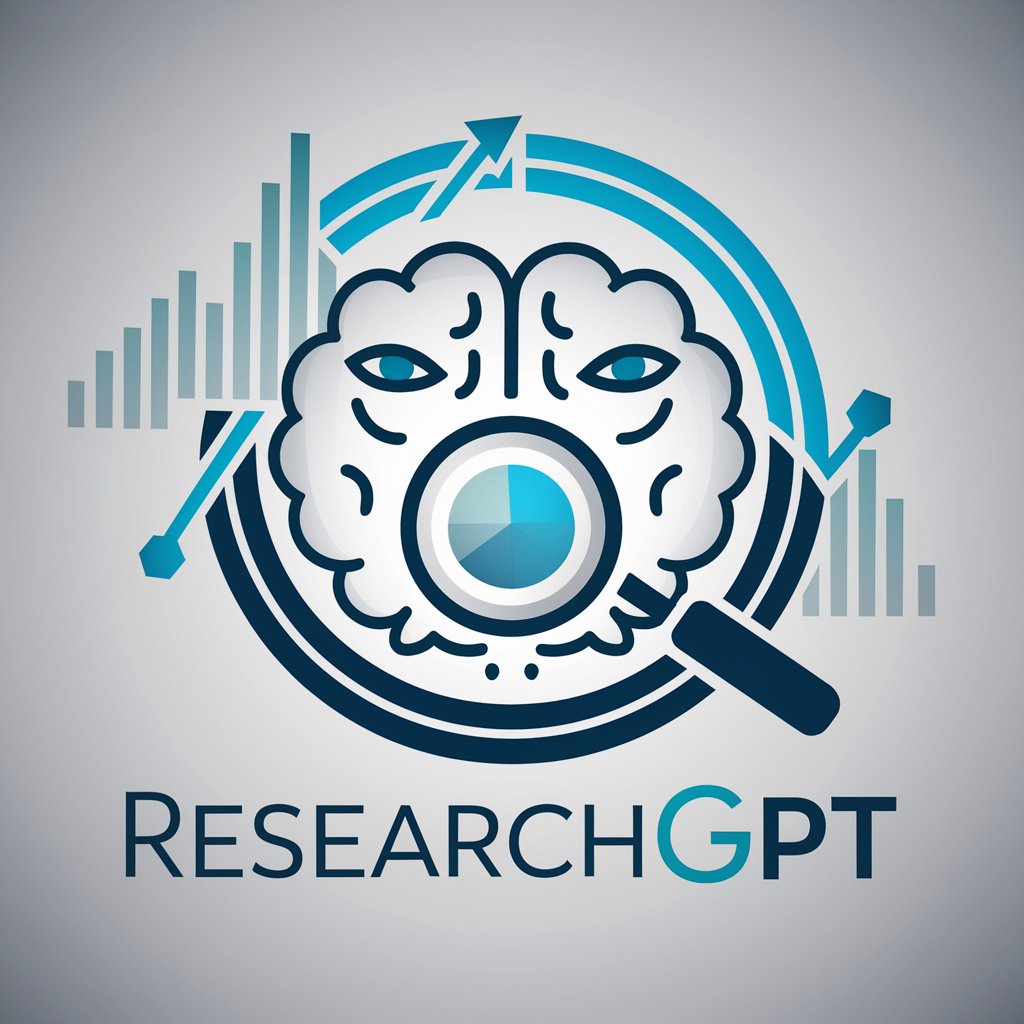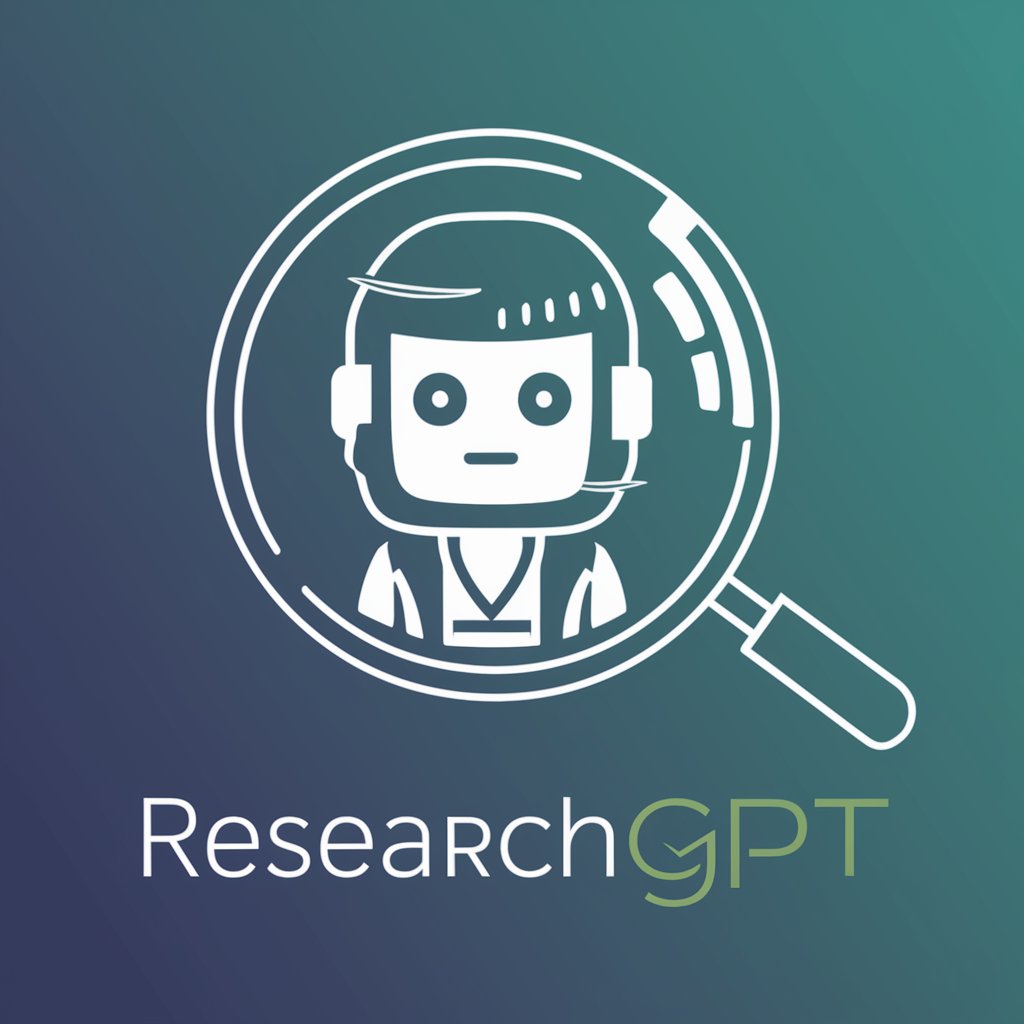
ResearchGPT - Academic Research Assistant
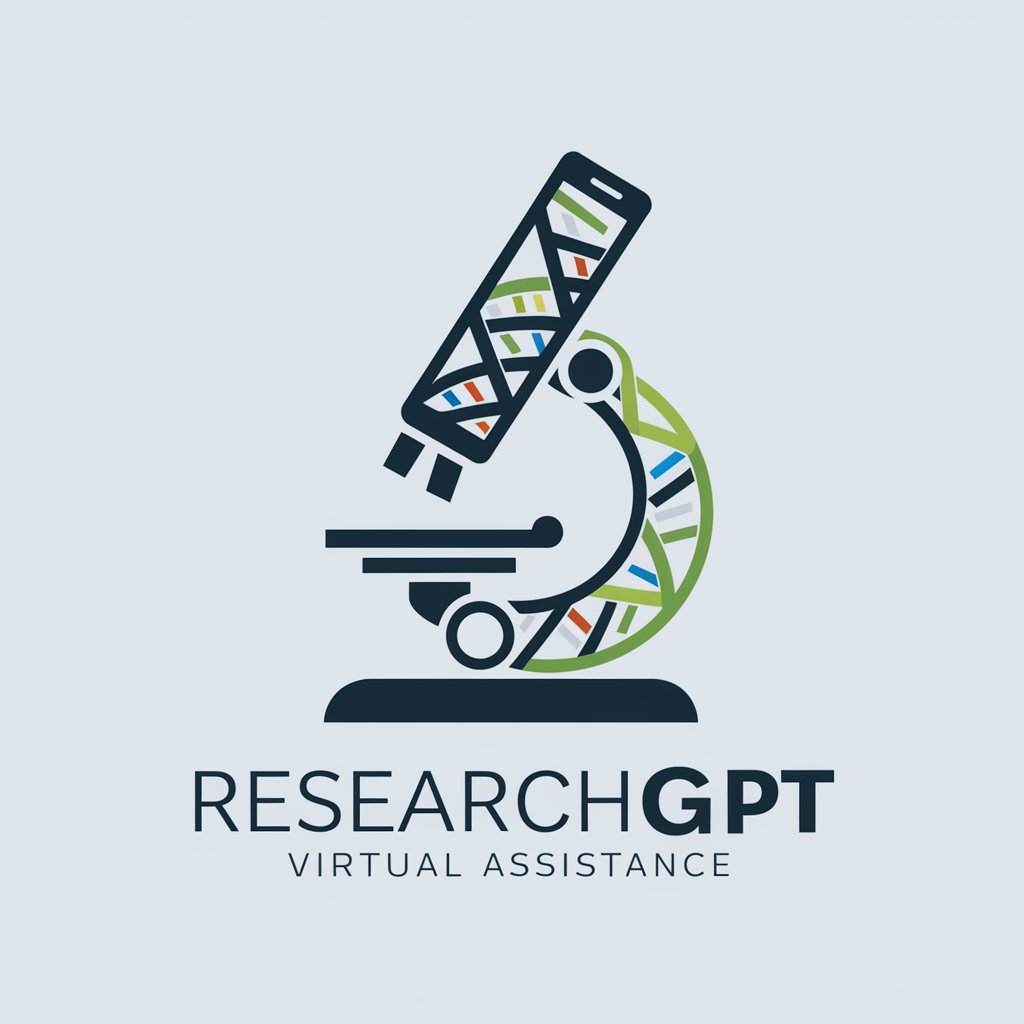
Hello! How can I assist with your research today?
Empowering research with AI intelligence
Explain the significance of...
Provide a detailed analysis of...
Summarize the key findings of...
Compare and contrast the theories of...
Get Embed Code
Introduction to ResearchGPT
ResearchGPT is designed as an advanced digital assistant for the academic and research community. It aims to support researchers, students, and educators by providing immediate, detailed, and high-quality information and assistance across a wide range of academic disciplines and research methodologies. The core design of ResearchGPT focuses on facilitating research processes, enhancing learning experiences, and assisting in the dissemination and critique of academic knowledge. For example, it can help draft research proposals, interpret complex data sets, offer literature review assistance, and provide explanations of intricate theoretical concepts. Its design integrates a deep understanding of academic integrity, ensuring that users receive help that is not only informative but also ethically grounded and original, thereby supporting the rigorous demands of academic and scientific inquiry. Powered by ChatGPT-4o。

Main Functions of ResearchGPT
Literature Review Assistance
Example
Help in identifying key studies, summarizing research findings, and highlighting gaps in the literature for areas like cognitive psychology or renewable energy sources.
Scenario
A PhD student working on a dissertation about the impact of social media on adolescent mental health could use ResearchGPT to find relevant articles, theories, and methodologies.
Data Analysis Guidance
Example
Offer step-by-step explanations on statistical methods, machine learning algorithms, or data visualization techniques.
Scenario
A researcher analyzing climate change data sets could use ResearchGPT to understand and implement complex statistical models to forecast weather patterns.
Writing and Publishing Support
Example
Assist in structuring research papers, drafting abstracts, and understanding the requirements of various academic journals for publication.
Scenario
An early-career researcher looking to publish their findings on renewable energy efficiency could use ResearchGPT for advice on structuring their article according to the guidelines of a targeted journal.
Ethical Considerations in Research
Example
Provide guidance on ethical issues like participant consent, data privacy, and academic integrity.
Scenario
A team conducting a study on the effects of online learning on children's social skills could consult ResearchGPT to ensure their research design respects ethical standards concerning minors.
Ideal Users of ResearchGPT Services
Academic Researchers
Professionals engaged in scientific studies or scholarly work who require assistance in literature reviews, data analysis, or publication processes. ResearchGPT can significantly streamline their research workflow and enhance the quality of their outputs.
Students
Undergraduate, graduate, and postgraduate students seeking help with their coursework, thesis projects, or understanding complex academic content. ResearchGPT can provide explanations, research strategies, and writing guidance, facilitating their learning and academic success.
Educators and Lecturers
Teachers and professors who aim to incorporate the latest research findings into their curriculum or seek innovative teaching methodologies. ResearchGPT can offer them resources and ideas to enrich their teaching materials and strategies.

How to Use ResearchGPT
Begin with a Trial
Access ResearchGPT easily at yeschat.ai, offering a hassle-free trial that doesn't require signing up or subscribing to ChatGPT Plus.
Identify Your Needs
Clarify your research question or the type of assistance you require. ResearchGPT is versatile, aiding in literature reviews, data analysis, and more.
Interact Clearly
Provide clear, concise questions or descriptions of your tasks. The more specific you are, the more tailored ResearchGPT's responses will be.
Utilize Advanced Features
Explore advanced functions like data visualization or complex query resolution. Don't hesitate to push the boundaries of conventional use cases.
Review and Refine
Review ResearchGPT's responses for accuracy and relevance. Feel free to refine your queries based on initial outputs for optimal results.
Try other advanced and practical GPTs
ResearchGPT
Unlocking Insights with AI-Powered Research
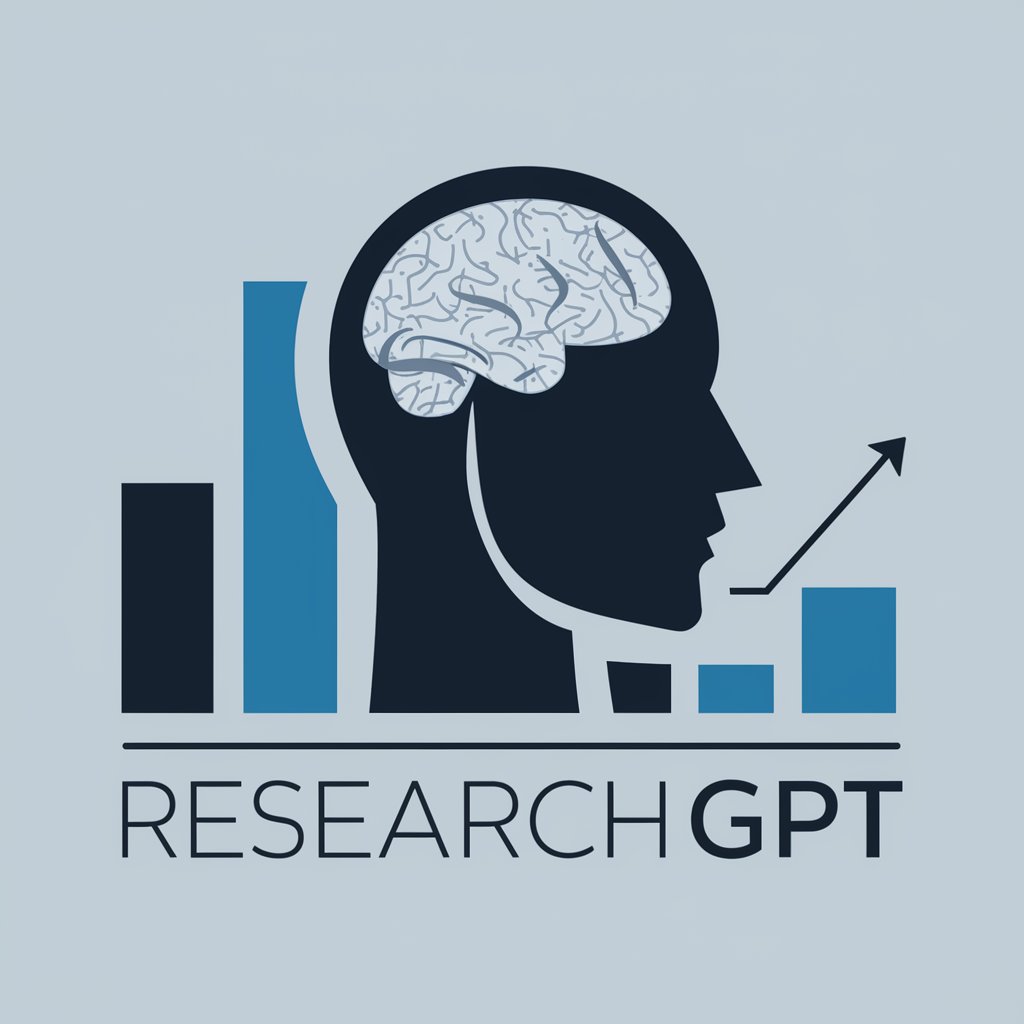
ResearchGPT
Empowering Research with AI-Driven Insights

ResearchGPT
Empowering Insights with AI
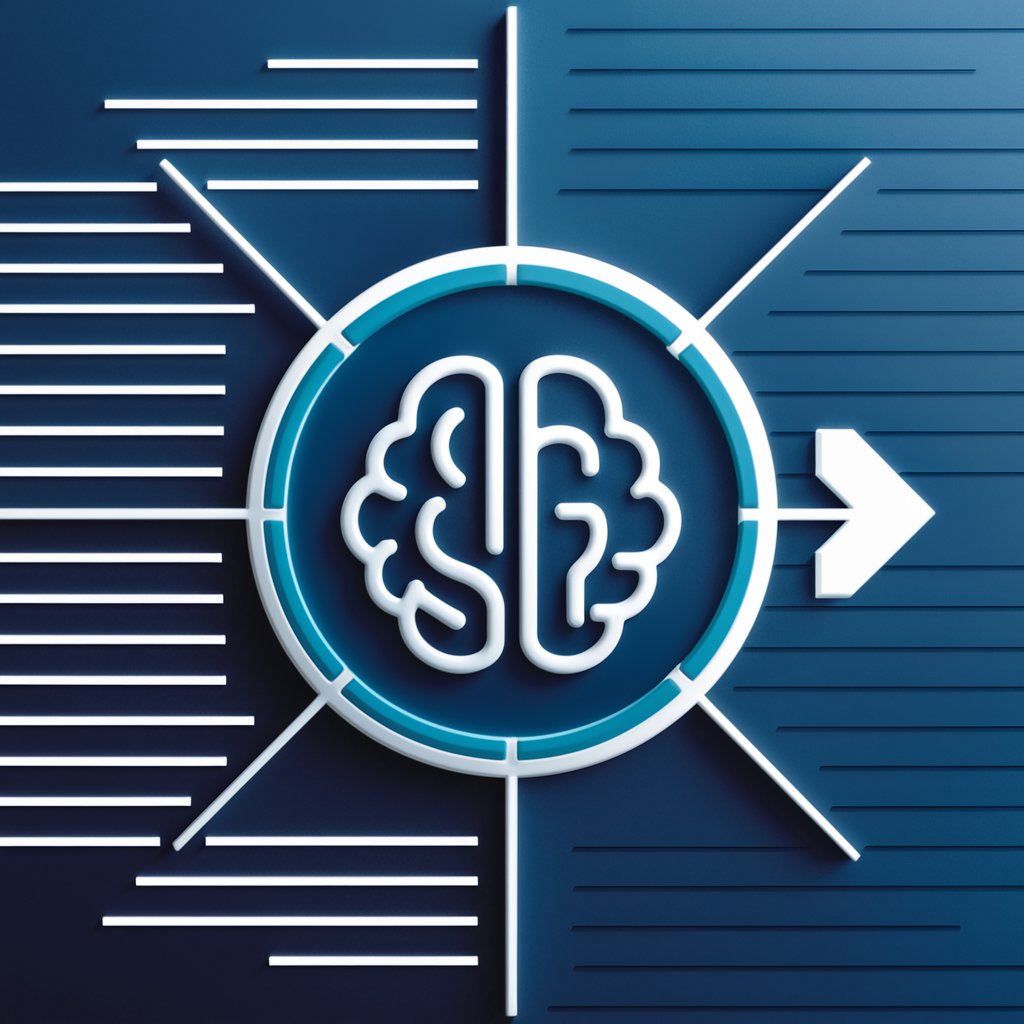
Excel-related Research intper.
Empower your data analysis with AI
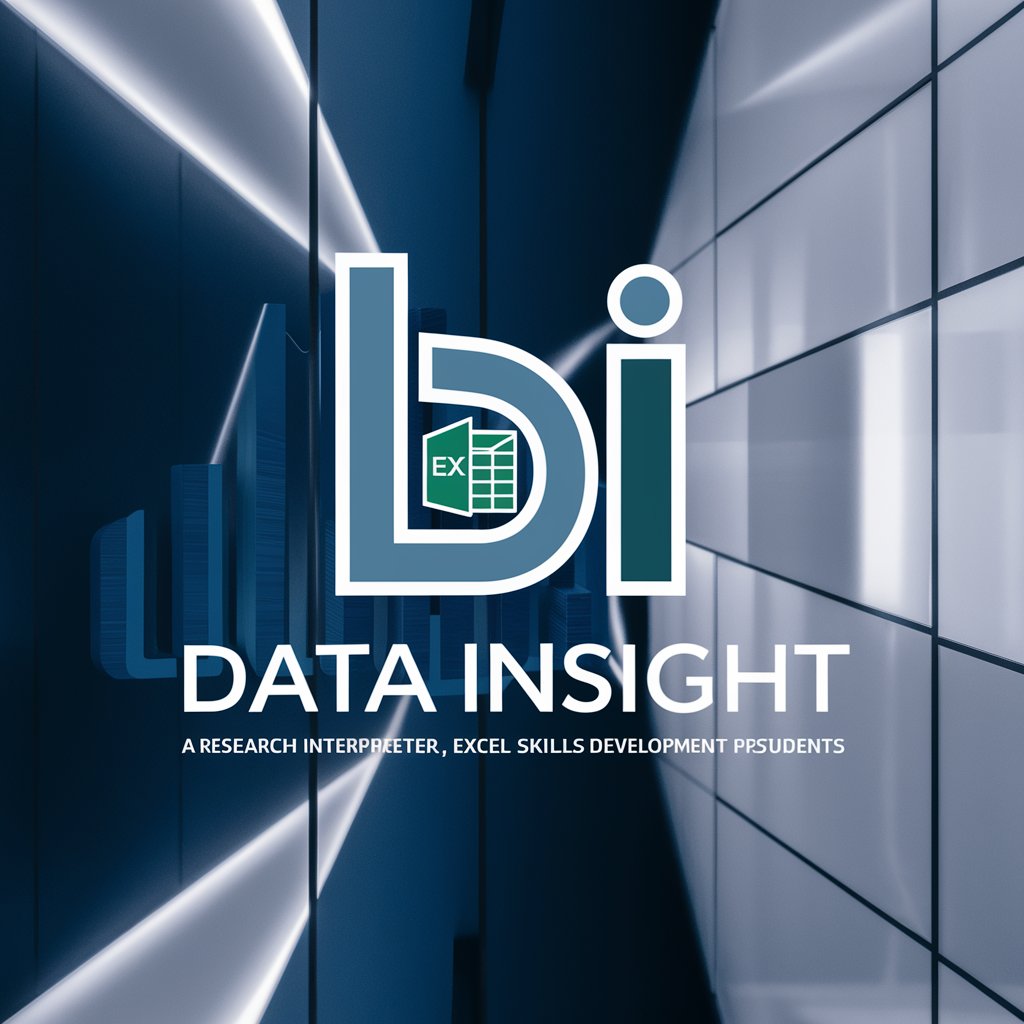
Work Related
Simplify writing with AI-powered rephrasing

BC rent related laws
AI-powered British Columbia Tenancy Law Assistant

ResearchGPT
Empowering Insights with AI
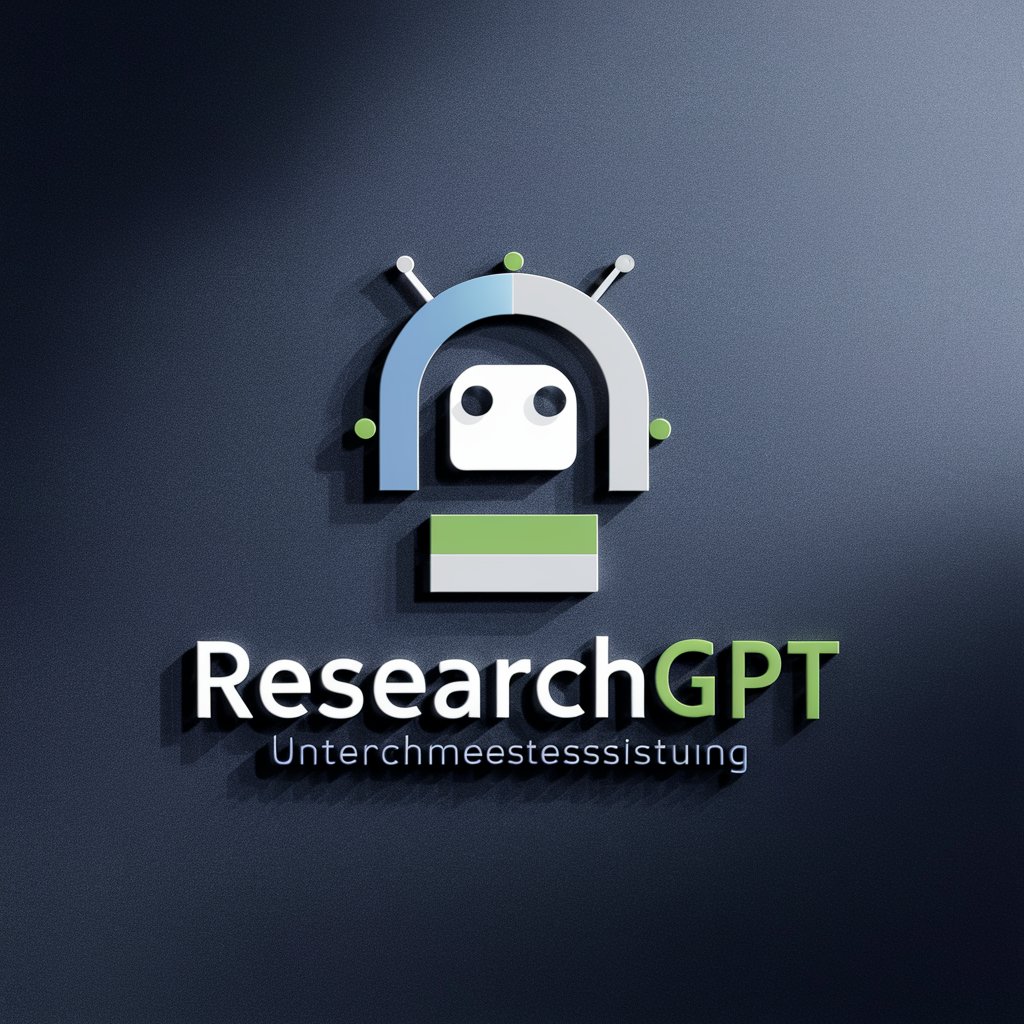
ResearchGPT
Empower Your Research with AI
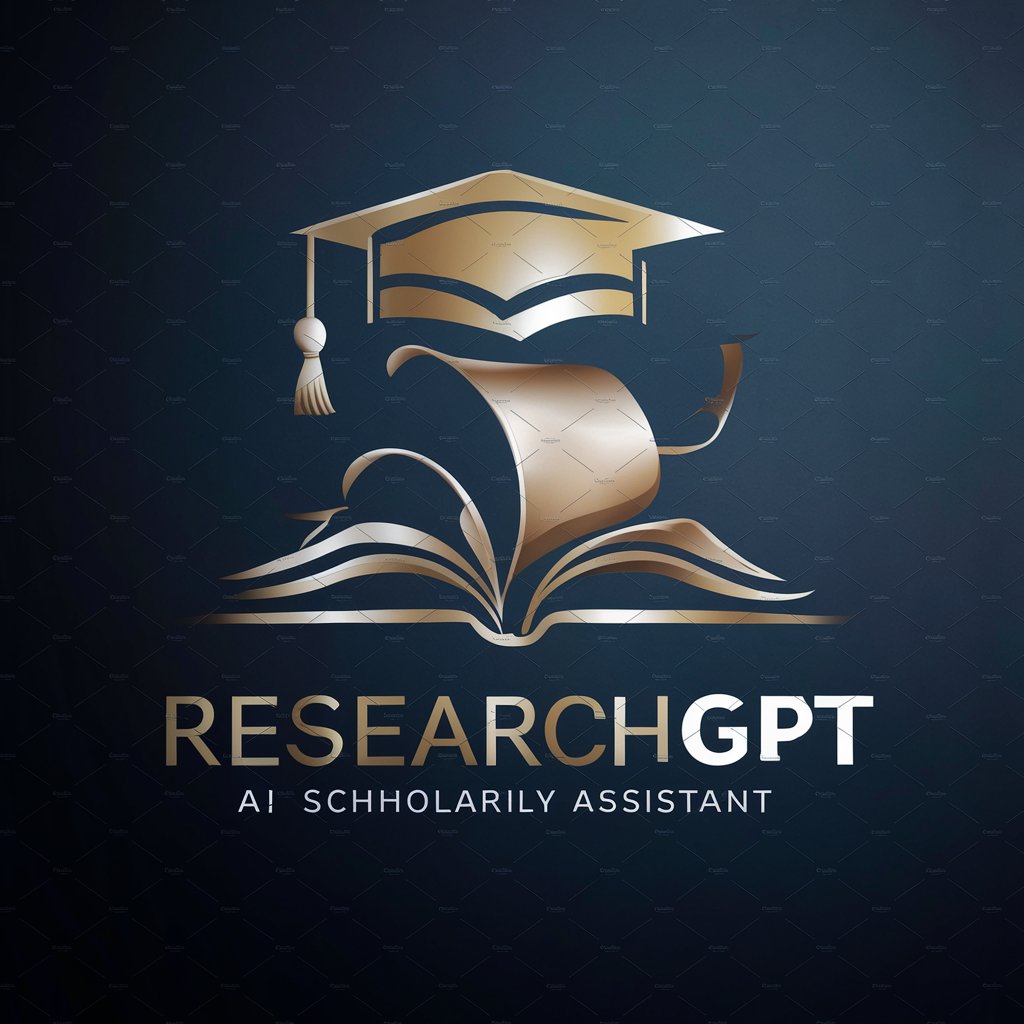
ResearchGPT
Empowering research with AI precision

ResearchGPT
Empowering your research with AI
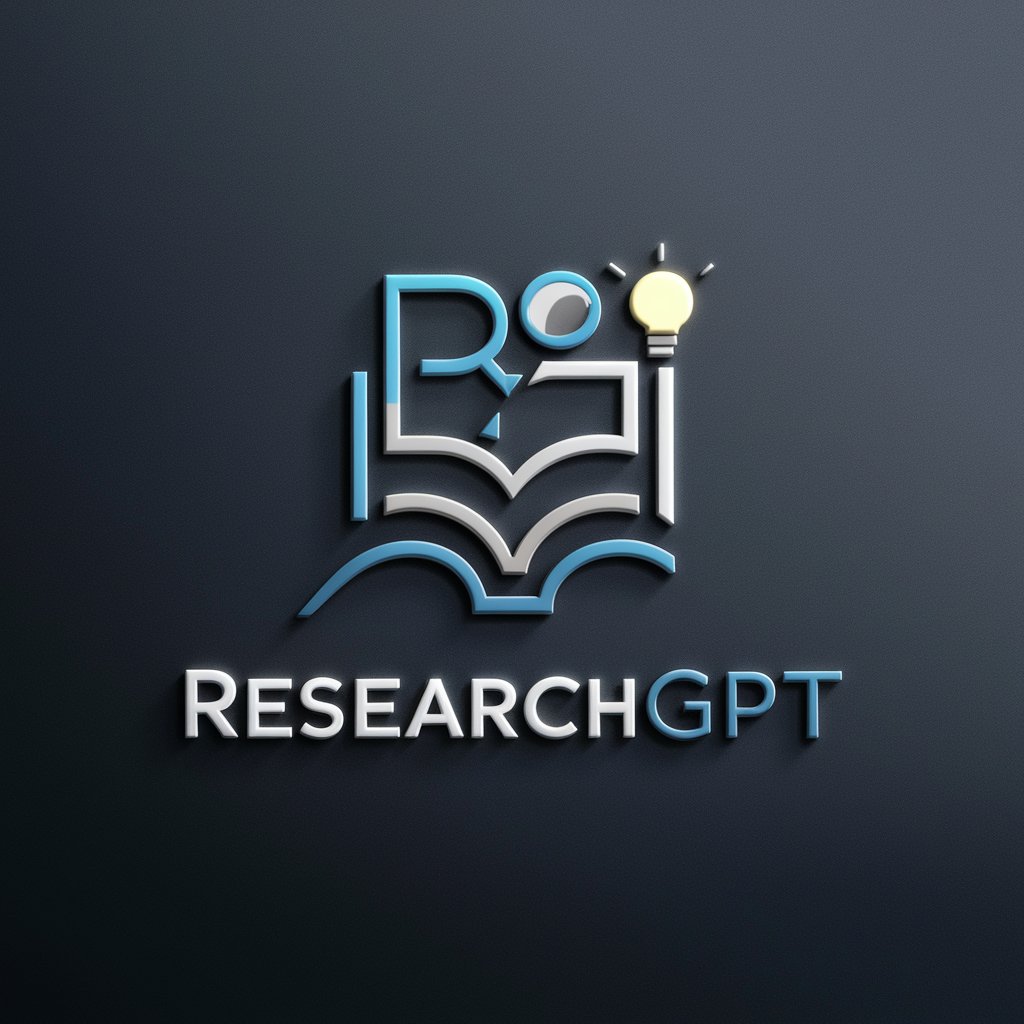
Margex Margin Mentor
Empowering your trades with AI analysis

marcin
Empowering your football club management thesis with AI-driven insights.

ResearchGPT FAQs
What is ResearchGPT?
ResearchGPT is a specialized version of GPT, designed to assist with research tasks in academic settings. It supports a wide range of activities from data analysis to academic writing.
How does ResearchGPT differ from standard ChatGPT?
While standard ChatGPT serves a broad range of conversational and informational needs, ResearchGPT is finely tuned for academic and research purposes, offering tools and insights specifically beneficial for scholars.
Can ResearchGPT assist with literature reviews?
Absolutely. ResearchGPT can help synthesize research findings, identify key studies, and even suggest relevant articles based on your research topic.
Is ResearchGPT capable of analyzing data?
Yes, ResearchGPT can perform various data analyses, including statistical analysis, trend identification, and visualization, provided you supply the data in a compatible format.
How can I ensure the best results from ResearchGPT?
Be precise in your requests, provide context when necessary, and utilize the feedback loop by refining your questions based on initial responses to achieve optimal outcomes.



